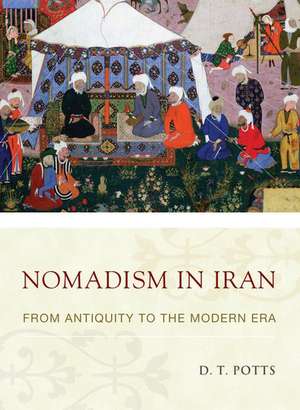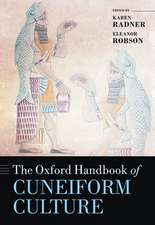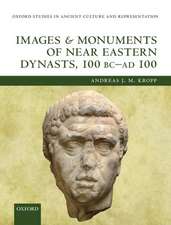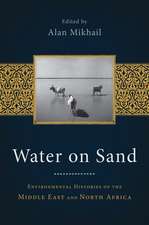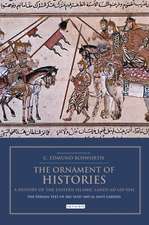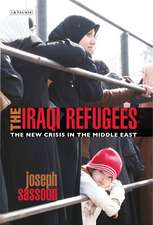Nomadism in Iran: From Antiquity to the Modern Era
Autor D. T. Pottsen Limba Engleză Paperback – 19 mai 2016
| Toate formatele și edițiile | Preț | Express |
|---|---|---|
| Paperback (1) | 371.57 lei 31-38 zile | |
| Oxford University Press – 19 mai 2016 | 371.57 lei 31-38 zile | |
| Hardback (1) | 693.46 lei 31-38 zile | |
| Oxford University Press – 22 mai 2014 | 693.46 lei 31-38 zile |
Preț: 371.57 lei
Preț vechi: 480.66 lei
-23% Nou
Puncte Express: 557
Preț estimativ în valută:
71.10€ • 74.23$ • 58.84£
71.10€ • 74.23$ • 58.84£
Carte tipărită la comandă
Livrare economică 24-31 martie
Preluare comenzi: 021 569.72.76
Specificații
ISBN-13: 9780190600594
ISBN-10: 0190600594
Pagini: 592
Ilustrații: 21 illus. & 3 maps
Dimensiuni: 155 x 231 x 38 mm
Greutate: 0.86 kg
Editura: Oxford University Press
Colecția OUP USA
Locul publicării:New York, United States
ISBN-10: 0190600594
Pagini: 592
Ilustrații: 21 illus. & 3 maps
Dimensiuni: 155 x 231 x 38 mm
Greutate: 0.86 kg
Editura: Oxford University Press
Colecția OUP USA
Locul publicării:New York, United States
Recenzii
Potts has written a sweeping ouvrage on the involvement and influence of nomads, semi-nomads, and tribes in shaping Iran's past and present.
Nomadism in Iran stands as a magisterial synthesis of the role of nomadism from Iran's pre-history through the 20th century. Based upon critical and exhaustive reading of material and textual evidence, this path-breaking book challenges our thinking as it clearly narrates and analyzes the fundamental changes in nomadism over the course of that long history.
Daniel Potts has produced a masterly history of nomadism in Iran since prehistoric times. His demolition of archaeological orthodoxies is impressive: in particular, he shows that nomadism came to Iran millennia later than supposed, and that reconstructing ancient nomadic societies by extrapolating from recent ethnographic studies is methodologically invalid and highly misleading.
offers a broad historical synthesis of pastoralism across the ages, accompanied by extensive bibliographic notes. It addresses a general need for more accessible literature on the political role of nomads, and includes considerable detail on specific transformative moments in the history of Iranian nomadism ... timely and engaging. The accessibility of Potts's book underlines that there is no longer any excuse to omit case-studies of Eurasian transhumant populations from discussions of global political development.
Nomadism in Iran stands as a magisterial synthesis of the role of nomadism from Iran's pre-history through the 20th century. Based upon critical and exhaustive reading of material and textual evidence, this path-breaking book challenges our thinking as it clearly narrates and analyzes the fundamental changes in nomadism over the course of that long history.
Daniel Potts has produced a masterly history of nomadism in Iran since prehistoric times. His demolition of archaeological orthodoxies is impressive: in particular, he shows that nomadism came to Iran millennia later than supposed, and that reconstructing ancient nomadic societies by extrapolating from recent ethnographic studies is methodologically invalid and highly misleading.
offers a broad historical synthesis of pastoralism across the ages, accompanied by extensive bibliographic notes. It addresses a general need for more accessible literature on the political role of nomads, and includes considerable detail on specific transformative moments in the history of Iranian nomadism ... timely and engaging. The accessibility of Potts's book underlines that there is no longer any excuse to omit case-studies of Eurasian transhumant populations from discussions of global political development.
Notă biografică
D. T. Potts is Professor of Ancient Near Eastern Archaeology at the Institute for the Study of the Ancient World, New York University.
